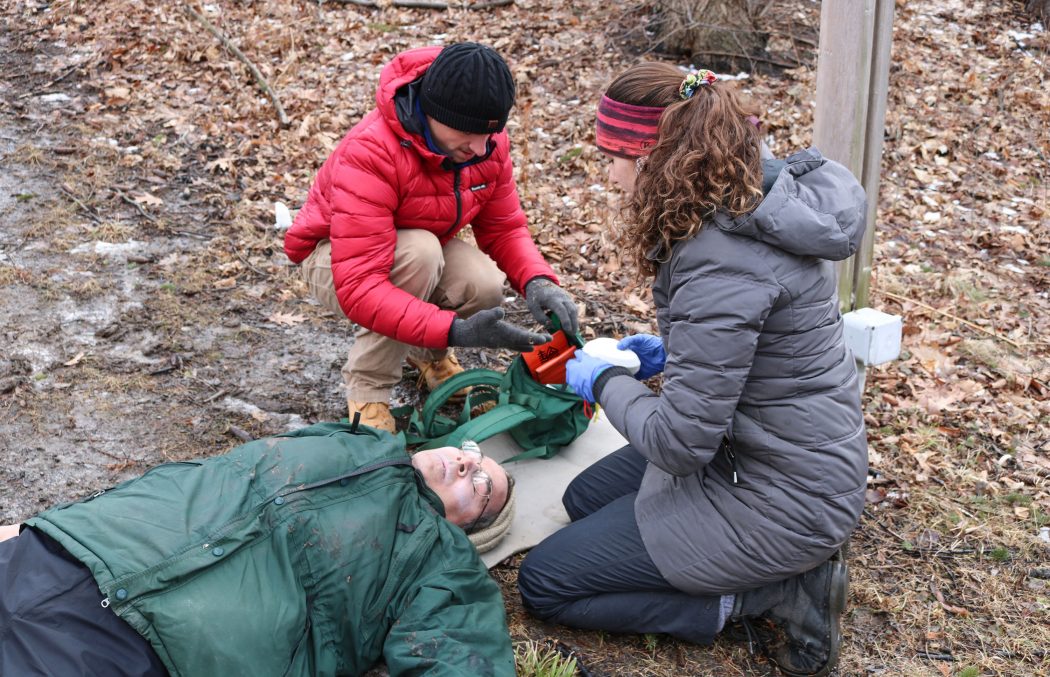
The great outdoors can be exhilarating and awe-inspiring, but it can also be unpredictable and unforgiving. Whether you’re an avid hiker, a passionate camper, or an adventurous explorer, it is crucial to equip yourself with the knowledge and skills necessary to handle emergencies in the wild. Here, we will discuss essential tips to help you prepare for unexpected situations and increase your chances of survival in the wilderness.
- Research and Plan:
Before embarking on any outdoor adventure, spend time researching the area you’ll be visiting. Familiarize yourself with its geography, climate, wildlife, and potential hazards. Understand the terrain, available water sources, and nearby shelters. Plan your route and inform someone trustworthy about your plans, including your expected return date.
- Pack the Essentials:
Always carry a well-stocked survival kit tailored to the specific challenges you may encounter. Your kit should include a compass, map, waterproof matches, fire starter, knife, first aid supplies, emergency blanket, whistle, signaling mirror, flashlight, extra batteries, water purification tablets, and high-energy snacks. Don’t forget to pack weather-appropriate clothing and extra layers to protect against extreme temperatures.
- Learn Basic First Aid:
Having basic first aid knowledge can be lifesaving. Enroll in a wilderness first aid course to learn how to treat common injuries, handle medical emergencies, and perform CPR. Carry a first aid manual in your kit as a quick reference guide. Knowing how to stop bleeding, dress wounds, and stabilize fractures can make a significant difference in an emergency situation.
- Master Fire Building Skills:
Fire is a crucial survival tool in the wild. Practice building fires using different techniques, such as a lighter, matches, or friction methods like the bow drill or hand drill. Understand the principles of fire safety and ensure you can create a sustainable fire that provides warmth, light, and a means of cooking food.
- Purify Water Sources:
Safe drinking water is vital for your survival. Learn multiple methods to purify water, such as boiling, using water filters, or chemical treatments. Never assume that natural water sources are safe to drink without proper treatment, even if they appear clean. It’s better to be cautious and prevent waterborne illnesses.
- Develop Navigation Skills:
Getting lost can quickly turn a pleasant outing into a dangerous situation. Learn how to use a map and compass, and practice navigating in various terrains. Familiarize yourself with natural landmarks, such as the position of the sun, stars, or prominent features, to find your bearings even without modern tools. Carry a reliable compass as a backup.
- Stay Calm and Assess the Situation:
In an emergency, staying calm is essential. Take a deep breath and assess the situation objectively. Prioritize your needs by addressing immediate threats, securing shelter, and ensuring your safety. Panic and impulsive actions can lead to poor decision-making and exacerbate the situation.
- Build a Shelter:
Knowing how to construct a shelter can protect you from the elements and provide a sense of security. Learn different shelter-building techniques, such as using natural materials like branches, leaves, and debris. Consider the prevailing weather conditions, and create a sturdy and insulated shelter to conserve body heat.
- Signal for Help:
If you find yourself in a dire situation, signaling for help can increase your chances of being rescued. Use a whistle, mirror, flashlight, or any other reflective objects to attract attention. Create visible distress signals, such as three evenly spaced fires or an SOS sign made of rocks or branches, to indicate that you need assistance.
- Practice Survival Scenarios:
Finally, simulate survival scenarios periodically to hone your skills. Set up mock emergencies with friends or join wilderness survival courses to put your knowledge to the test. Practicing in a controlled environment will help you build confidence, improve your problem-solving abilities, and familiarize yourself with the equipment and techniques you’ve learned. You need to buy 12 gauge ammo online from Palmetto State Armory for self-defense in emergencies.
Conclusion:
Preparing for emergencies in the wild requires a combination of knowledge, skills, and the right mindset. By conducting thorough research, packing the essentials, and mastering vital skills, you increase your chances of survival and ensure a safer outdoor experience. Remember, being well-prepared not only equips you with the tools you need but also grants you the peace of mind to fully enjoy nature’s wonders while staying safe.





